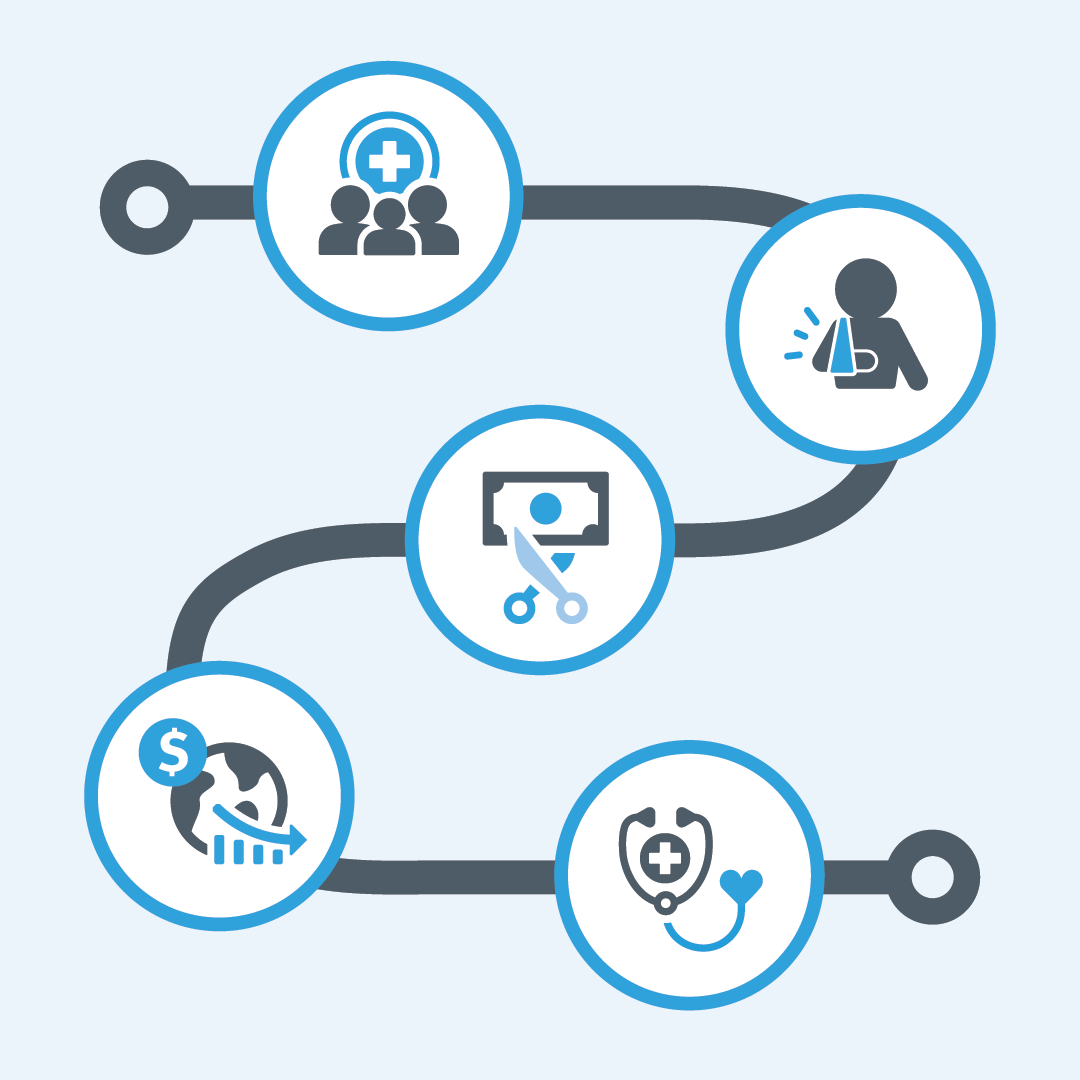
Need for Oral Health Improvements Finally Being Heard in Congress
04.07.2023
Oral health is key to overall health and wellness, employment opportunities, economic stability, and social connectedness. Policymakers have the power— and arguably the responsibility– to enact policy changes that acknowledge this reality, but they have let this issue sit on the back burner for decades. But, luckily, some key members of the 118th Congress are starting to shine a brighter light on oral health.
A few weeks ago, at the end of March, the U.S. Senate Committee on Finance’s Health Subcommittee held its first hearing of the year titled: “An Oral Health Crisis: Identifying and Addressing Health Disparities”. Importantly, it shows bipartisan interest and a growing commitment to elevating the issue. Now is the time to make sure that interest turns into meaningful policy action.
During the hearing we heard a lot about the problem: for far too many people, affordable and high- quality dental care is out of reach. Disparities in who has good oral health, and who has access to oral health care, are significant, with people of color, people in rural areas, and people with disabilities often shut out of the oral health system. The witnesses at the hearing testified to the current state of poor oral health in America, barriers to care, strains on the workforce, and most importantly: the need for change.
Now we need solutions.
The first, most impactful step Congress can take is providing comprehensive dental coverage for all people who rely on Medicare or on Medicaid for their health. In this nation, our health should not depend on our wealth, but without these foundational oral health coverage solutions, it absolutely does. As Families USA shared in our statement for the record, the current lack of coverage for oral health services in Medicare and the spotty, ever-changing coverage for adults who rely on Medicaid are fundamental gaps. As one witness at the Senate hearing put it, “in America’s health care system, essentially we disconnect mouth and body when people become adults.”
Without insurance, oral health care is too expensive for many people to afford. For example, the average cost of a root canal is between $750 and $1,200.[i] As a result, dental care remains the number one medical service families skip due to cost.[ii] Moreover, 93% of individuals living in poverty have unmet dental needs, compared with 58% in high-income families.[iii]
This past year, states like Hawaii, Kansas, Kentucky, Maryland, North Carolina, New Hampshire and Tennessee took note of these dynamics and made meaningful improvements to their state Medicaid dental coverage. Now it is time for federal progress that secures and expands on these wins.
It will be extremely difficult to make progress on other important components of improving oral health without action on Medicare and Medicaid. Coverage is a critical step toward integrating dental and medical care, ensuring oral health providers are affordable and available in all areas, improving access to telehealth, and many of the other important issues raised in the hearing.
As people who advocate for health and equity, it’s time for us, once again, to push for oral health solutions. Here are a couple ways you can get involved:
- Sign & Share Families USA’s Petition: Medicaid Should Cover our Whole Bodies: Mouths Included!
- Join the Medicare Oral Health Coalition by emailing info@familiesusa.org info@familiesusa.org
- Thank the Senate Finance Committee Health Subcommittee Chair, Sen. Cardin, and Ranking Member, Sen. Daines for their attention to this issue, and encourage them to keep working on it.
[i] https://www.colgate.com/en-us/oral-health/root-canals/what-root-canals-cost-why-cost-varies
[ii] https://familiesusa.org/wp-content/uploads/2021/10/COV-2021-349_Why-Strong-Health-Care-Policies-in-Reconciliation-Are-Necessary-to-Advancing-Racial-Equity.pdf
[iii] https://www.carequest.org/topics/health-equity




